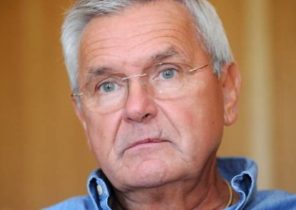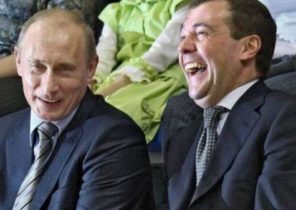The Eurasian economic Union (EEU) adopted a number of measures to combat the pandemic covid-19 and mitigate its economic impact. But although coronavirus has created incentives to implement long-stalled reforms, members of the the Moscow-led trade bloc demonstrate only limited willingness to help each other.
April 10, the governing body of the EEU has approved a plan that includes a temporary zero import customs duties and simplification of customs procedures for the import of critical goods, including most items of the main agricultural products and some medical supplies. The rules will be in effect until the end of June, and in the case of medical products — up to 30 September.
In the list of critical goods entered including medical mask, causing a number of unpleasant incidents on the Kazakh-Russian border. Kazakhstan border guards reported that April 15 was prevented an attempt of illegal export to Russia of 400 thousand masks. Two weeks later, from Kazakhstan to the Russian Federation tried to smuggle a million masks under the guise of food products. Nur-Sultan banned the export of masks in February, even in partner countries in the EEU.
Meanwhile, Russia has continued to supply members of the EEU test-systems for diagnostics covid-19. As reported on April 14, the Federal service, they were transferred to members of the unit an additional order of 70 thousand tests.
Moscow also made it clear that he will spend his allies in the EEU priority in the matter of food: April 26, Russia announced the suspension until July 1 of the export of wheat, rye, barley and corn, but for the countries-members of the Union, an exception was made. Earlier, the Kremlin has imposed quotas on the export of grain from the country until June (though polled by Reuters, analysts have expressed the view that the quotas will not have a major impact on exports). But Georgia, which buys a large part of the consumption of wheat in Russia, in any case signed a contract for the purchase at the end of may to 27 thousand tons of American grain.
Meanwhile, the EEU is revising its internal rules regulating cross-border markets, acknowledging in its annual report that there are still serious problems with dumping and other forms of unfair competition. The block also brought the end of some previously agreed tariff reform, declaring April 21, approved the updated version of the main structures of the customs documents.
But all these organizational, formal steps, the texts of which are overcrowded legal terminology, hiding the fundamental internal contradictions. “The Eurasian Union is clearly suffering from a lack of leadership, — is spoken in published on may 4, the report of the Finnish Institute of international Affairs. The pandemic demonstrated the weakness and the limited relevance of the EAEC from the standpoint of ability to help partners to confront the most pressing challenges, whether epidemiological or economic nature.”
During a video conference April 14, President of Belarus Alexander Lukashenko warned that the Eurasian economic Union may come apart, if you can’t organize the fight against covid-19 United front.
One of the sources of fundamental contradictions in the EEU is that two of its largest members (Russia and Kazakhstan) are large exporters of energy while others (Armenia, Belarus and Kyrgyzstan) are highly dependent on energy imports.
Smaller membership asking for help. Meanwhile, in the background of the strike, a pandemic struck the world economy, energy prices collapsed to historic lows. As a result, in Armenia, where Gazprom owns the gas pipeline network and is the largest taxpayer of the country, the Russian state energy giant wants to raise prices. The same thing is happening in Kyrgyzstan, where Gazprom announced on April 13 that it will increase tariffs by 14-15% for businesses and residential customers, citing the growth of the dollar. Belarus asks to reduce the price, as stated by 29 April, the representative of the Ministry of energy of the country, but on the same day, Russian energy Minister Alexander Novak ruled out the decline in prices this year.
Sounds like fun. Can I join you?
Amid all these contradictions in the post-Soviet space, the lower house of the Uzbek Parliament voted for the country’s accession to the EAEU as a state-observer: 86 MPs voted in favor and 32 against, with 14 abstentions. Observer status has little value to Tashkent, though it may be a forerunner of full membership or, perhaps, the free trade agreement.
For members of the Union, such as Armenia and Kyrgyzstan and other poor former Soviet republics, including Tajikistan and Uzbekistan, the slowdown in economic growth in Russia resulted in a sharp drop in remittances from migrant workers — a vital source of foreign currency. According to an article published on 7 April, the Russian business newspaper RBC, the operator of the payment system Unistream reported a decrease in the volume of remittances from Russia in March by 35% compared to the same period last year, and the Russian “Golden crown” (also known as KoronaPay) — 30%. It was expected that in April, the translations will collapse by 50%.
Maximilian Hess is a political risk analyst and writer living in London







